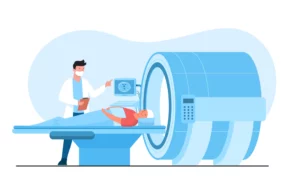 Radiation therapy is a vital component of cancer treatment that utilizes high-energy rays or particles to target and destroy cancer cells.
Radiation therapy is a vital component of cancer treatment that utilizes high-energy rays or particles to target and destroy cancer cells.
Today, we’ll delve into the world of radiation therapy, its different modalities, and how it plays a crucial role in the fight against cancer.
Understanding Radiation Therapy
Radiation therapy, also known as radiotherapy, involves the use of high-energy radiation to damage or destroy cancer cells. It is used to treat various types of cancer or as part of a comprehensive treatment plan.
Types of Radiation Therapy
- External Beam Radiation. This is the most common type of radiation therapy. It involves a machine that directs radiation beams from outside the body, precisely targeting the tumor.
- Internal Radiation (Brachytherapy). In this method, a radioactive source is placed inside or near the tumor.
How Radiation Therapy Works
Radiation therapy damages the DNA inside cancer cells, preventing them from growing and dividing. As cancer cells are less capable of repairing this damage, they are more vulnerable to radiation than healthy cells.
Indications for Radiation Therapy
- Curative. To eliminate or shrink the tumor with the goal of curing the cancer.
- Adjuvant. To destroy any remaining cancer cells after surgery or other treatments.
- Palliative. To relieve symptoms and improve the quality of life in advanced cancer cases.
Treatment Planning
Radiation therapy requires precise planning to target the tumor while minimizing damage to surrounding healthy tissues.
Side Effects
Side effects of radiation therapy can vary depending on the treatment site and the individual. Common side effects include fatigue, skin changes, and temporary discomfort in the treated area. These side effects are typically manageable and improve after treatment.
Multidisciplinary Approach
Oncologists often use radiation therapy in conjunction with surgery, chemotherapy, and immunotherapy, creating a comprehensive cancer treatment plan tailored to the patient’s specific needs.
Highly Specialized Care
Radiation therapy is delivered by a team of healthcare professionals, including radiation oncologists, medical physicists, and radiation therapists. These specialists work together to ensure the safe and effective delivery of treatment.
Advances in Radiation Therapy
Ongoing research and technological advancements have improved the precision and effectiveness of radiation therapy. Techniques such as intensity-modulated radiation therapy (IMRT) and proton therapy allow for more targeted treatment.
Radiation therapy is a critical tool in the battle against cancer. The choice of radiation therapy, the treatment plan, and the coordination with other treatment modalities depend on the type and stage of cancer, as well as the patient’s overall health.
It’s essential to consult with a medical oncology team to determine the most suitable treatment approach for each individual case.
Picture Credit: Freepik
